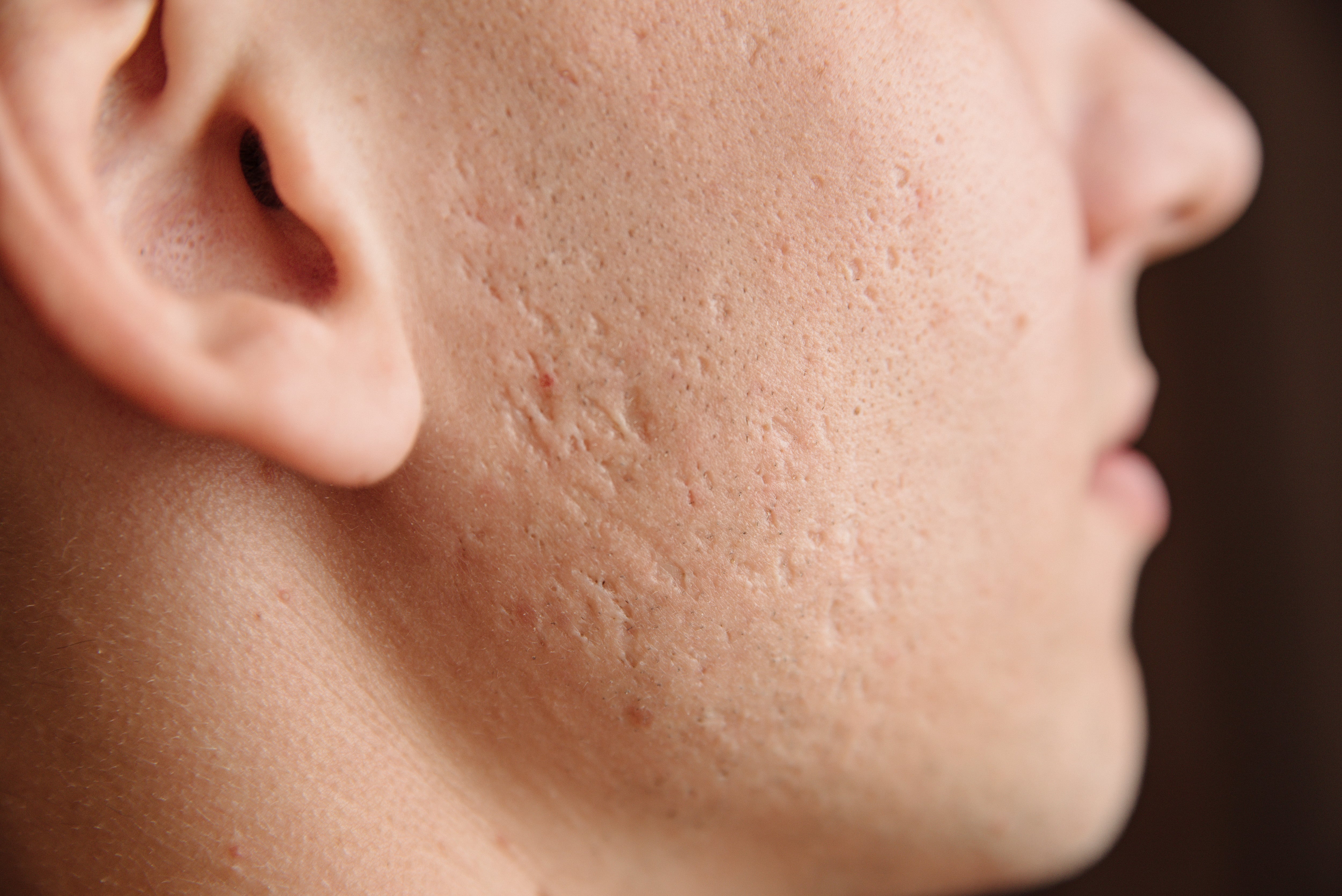
Acne is a common skin condition that affects people of all ages. While the pimples themselves can be irritating, the lasting impact often comes from the scars they leave behind. Acne scars can be stubborn, lingering on your skin long after the acne has cleared up. Understanding why these scars stay and how to treat them effectively can help you regain smoother, clearer skin.
Why Acne Scars Stay
Acne scars form as a result of inflammation caused by a pimple. When a pore becomes clogged with excess oil and dead skin cells, bacteria can grow, leading to inflammation. In some cases, the inflammation can damage the skin, resulting in scarring. There are several factors that can affect how long these scars remain:
- Depth of the Pimple
The depth of the acne determines how severe the scar will be. Superficial pimples usually heal without leaving scars, but deeper cystic acne can cause long-lasting damage to the skin. - Picking or Squeezing Pimples
Picking or squeezing acne can push bacteria deeper into the skin and cause additional damage. This can worsen scarring and prolong the healing process. - Skin Type and Genetics
People with darker skin tones may be more prone to hyperpigmentation, while individuals with lighter skin tones may develop atrophic scars (depressed scars). Genetics also play a role in how your skin heals after acne outbreaks. - Inflammation and Infection
The more inflamed the acne is, the more likely it is to leave a scar. If the acne is not treated promptly or effectively, the risk of scarring increases. - Delayed Treatment
The longer you wait to treat acne, the higher the likelihood of scarring. Timely intervention can reduce the risk of scarring and promote faster healing.
Types of Acne Scars
Not all acne scars are the same. There are different types of scars, each requiring specific treatments. The most common types include:
- Atrophic Scars
These are the most common type of acne scars. Atrophic scars are characterized by a loss of tissue, resulting in indentations or depressed areas on the skin. They can range from small pits to larger craters. - Hypertrophic Scars
These scars are raised above the surface of the skin due to excess collagen production. While less common, hypertrophic scars can be quite noticeable. - Hyperpigmentation
While not technically a scar, hyperpigmentation is the darkening of the skin caused by increased melanin production after an acne lesion heals. This type of discoloration can fade over time with proper care.
How to Treat Acne Scars Effectively
Now that we understand why acne scars stay, it's time to look at how to treat them effectively. There are several treatment options available, depending on the type and severity of the scars.
- Topical Treatments
Over-the-counter creams or gels containing ingredients like retinoids, alpha hydroxy acids (AHAs), or vitamin C can help fade hyperpigmentation and encourage skin renewal. These ingredients can promote collagen production and improve skin texture over time. - Chemical Peels
Chemical peels use acids to exfoliate the skin and remove the top layer, revealing fresher skin underneath. This treatment can help reduce the appearance of atrophic scars and hyperpigmentation. - Microneedling
Microneedling involves using tiny needles to create micro-injuries in the skin, which stimulate collagen production and improve the skin's texture. This treatment can be effective for atrophic scars, as it helps to fill in the depressed areas. - Laser Therapy
Laser treatments, such as fractional CO2 or erbium laser, can target the deeper layers of the skin to break down scar tissue and stimulate collagen production. This can help improve the texture and appearance of acne scars, especially atrophic scars. - Filler Injections
For deep, pitted scars, dermal fillers can be injected into the skin to lift the scar and make it less noticeable. These fillers help restore volume and improve the skin’s smoothness. - PRP (Platelet-Rich Plasma) Therapy
PRP therapy uses your own blood to create a serum that is injected into the skin to stimulate healing and collagen production. This treatment can be effective for reducing the appearance of acne scars and promoting overall skin health. - Sun Protection
Sun exposure can worsen the appearance of acne scars by causing further pigmentation and preventing proper healing. Always apply sunscreen with SPF 30 or higher to protect your skin from UV damage.
When to Seek Professional Help
If home treatments aren't delivering the results you want, it may be time to consult a dermatologist or skincare professional. They can recommend more advanced treatments, such as chemical peels, laser therapy, or microneedling, that can provide faster and more noticeable results.
Prevention Tips
While it may not be possible to completely prevent acne scars, there are steps you can take to reduce the likelihood of developing them:
- Avoid picking or squeezing acne.
- Treat acne early with appropriate skincare products.
- Use sunscreen daily to protect healing skin.
- Follow a consistent skincare routine to promote healthy skin regeneration.
Conclusion
Acne scars can be frustrating, but with the right treatment, you can improve their appearance and regain your confidence. Whether you choose topical treatments, professional procedures, or a combination of both, it's important to be patient and consistent. Remember, treating acne scars is a journey, and with time and the right care, clearer, smoother skin is within reach.
Acne Scars in Sheridan, AR
If you're struggling with acne scars, our team at Weight Loss AR & Wellness is here to help. We offer personalized treatments to target and reduce the appearance of acne scars, restoring the smooth, clear skin you deserve. Contact us today to learn more about our services and schedule your consultation.



